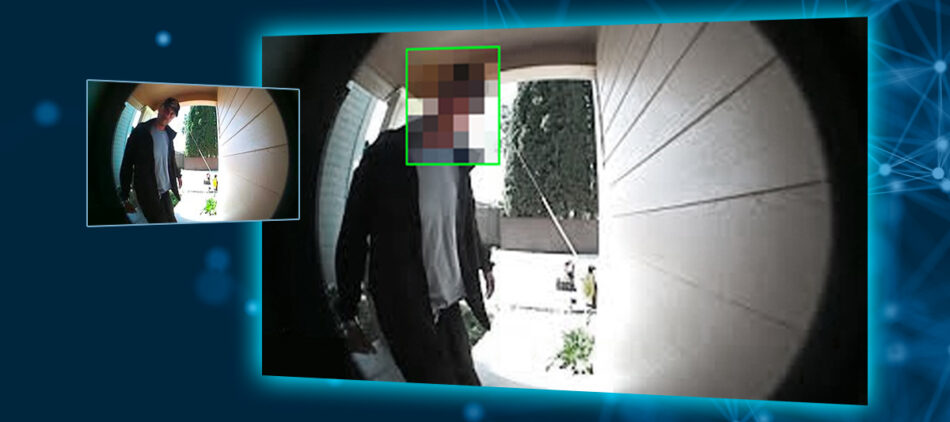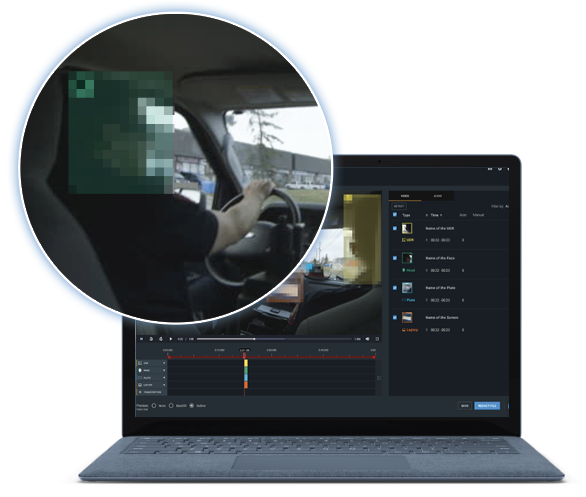
How Does AI Protect Privacy With Redaction Technology?
In an increasingly digital world, protection of privacy is imperative, not only for personal safety, but also for the integrity of investigations and civil and criminal cases.
While technology has provided law enforcement, legal and judicial teams, and government agencies with greater accuracy and larger amounts of evidentiary data, this can be a double-edged sword. Greater volumes of data require more processing efforts, and—depending on the complexity of the investigation and how large its data set is—these government entities and public safety and justice agencies might not be able to dedicate or afford to have enough personnel manually review each file and redact the necessary personally identifiable information (PII).
Enter artificial intelligence (AI). With the right AI-infused tools, such as Veritone Redact, government agencies, law enforcement agencies (LEAs), and legal and judicial teams can automate the process of finding and redacting PII such as faces, names, social security numbers, driver’s licenses, and more.
In this blog, we will discuss:
- What personally identifiable information is
- Why PII should be protected
- The issues and pain points surrounding manual redaction efforts
- How AI redaction can help streamline processes
Before we dive into how AI can improve the speed and accuracy of LEAs’, FOIA teams’, and legal teams’ redaction of PII, let’s take a look at what PII refers to and why its protection is crucial.
What is PII?
The official definition of PII comes from the Department of Homeland Security, stating: “DHS defines PII as any information that permits the identity of an individual to be directly or indirectly inferred, including any information that is linked or linkable to that individual, regardless of whether the individual is a US citizen, lawful permanent resident, visitor to the US, or employee or contractor to the Department.”
In a nutshell, PII is essentially anything that can be used to identify a person.
Why is protecting identity and personally identifiable information in investigations important?
Not only is protecting PII important for protecting individuals and the integrity of investigations and cases, but it’s also a legal requirement. PII protection can safeguard the identities of individuals (such as witnesses or victims) who may be at risk of targeting, harassment, or violence.
Whose information may need to be redacted?
- Parties involved in the case
- Victims
- Witnesses
- Informants
- Minors
- Court personnel
- Jurors
What information needs to be redacted?
- Certain names
- Criminal identification and National Crime Information numbers
- Dates of birth
- Home addresses
- Email addresses
- Phone numbers
- Driver’s license numbers
- Passport numbers
- Social security numbers
- Taxpayer identification numbers
- Financial account numbers
What other information could qualify for redaction?
- Medical or psychiatric information
- Trade secrets
- Sensitive security information
- Other forms of unique identifiers
Already, it’s easy to see how much work this presents for LEAs, FOIA teams, and legal teams, especially when this information needs to be redacted in documents, images, videos, and audio files.
The issue: Redacting identifiable information manually takes time, effort, and money
Manually redacting PII within documents takes a lot of effort. However, the redaction of PII within audio and video files takes work effort to a whole new level of complexity and time expended. Audio requires cutting, photos and text require blurring or blacking out, and videos require redaction in each frame the PII appears in. It’s a tedious, time-consuming task that requires hours of work from multiple people.
What’s more, the judiciary system is not equipped to handle such massive volumes of cases in a timely manner. Aside from the redaction work that has been done on the investigative side, legal teams need to review each case and may have to perform their own redactions.
Manual redaction is no longer scalable; it’s not cost-effective and it takes teams away from other work that they could be doing. For these reasons alone, there’s a strong need for automation.
Along with saving time and costs, utilizing automated technology can help improve department accuracy and employee mental health. Let’s say that an analyst is tasked with redacting video footage from three bodycams, and unfortunately, the scene was violent. Rather than staring at and redacting potentially upsetting or disturbing footage for days at a time, the analyst could run the AI redaction program and review its findings in a much more succinct, manageable timeframe.
AI offers a powerful and accurate way to ensure identities are protected
With AI privacy and redaction programs, LEAs, FOIA teams, and legal teams can save costs, hours, and manpower by letting AI do the heavy lifting, so all that’s needed on the human side of the task is to review the data.
Now that we’ve discussed the pain points that these teams face with manual redaction, we can take a closer look at how Veritone’s AI redaction software can offer the support these teams need.
Meet Veritone Redact: automated video and audio evidence redaction software
Veritone Redact was created with LEAs and legal and FOIA teams in mind. Fueled by aiWARE, Veritone’s proven AI enterprise platform, Veritone Redact helps teams save time, costs, and resources by automating the redaction process for audio-, image-, and video-based evidence.

Some of Veritone Redact’s impressive capabilities include:
- One-click redaction of heads and user-defined objects, words, and phrases within video, image, and audio evidence
- Automatic detection heads and objects (such as laptops, license plates, driver’s licenses, etc.) within video footage and images
- Chronological display of detection results in a preview panel and within the video player
- Select user-defined objects within videos and automatically track the chosen items throughout the video
- Using a cursor to define a zone and live track a specific item during video playback for upcoming redaction
- Search audio files for keywords and phrases (perfect for 911 calls, interview room recordings, in-car video systems, or body cams)
- Accurately transcribe redacted audio for added visual support
- Ability to perform additional redactions in case of any missed PII
- Support compliance and chain of custody requirements by tracking workflows with the comprehensive recording of each action that was taken against the redacted evidence
- Downloading redacted evidence files along with audit logs of each action taken
- Collaborate on and track PII redaction workloads by simply tagging files with status updates
- Work on local or remote, cloud-sharing computers for ultimate ease-of-use
Who does Veritone Redact benefit?
Benefits for public safety agencies: Veritone Redact can help LEAs prepare evidentiary data for police consent decrees and public information requests for release while maintaining the integrity of the investigation and protecting the identities of individuals involved.
Benefits for public justice agencies: Veritone Redact can help legal teams preserve the integrity of their cases and stay in compliance with court procedures while meeting timely deadlines for court filings.
Benefits for government agencies: Veritone Redact can enable FOIA teams to deliver the redacted FOIA request in a timely manner, helping agencies meet their request deadlines and providing greater transparency with the public.
Benefits for the public: Whether a public information request or preparing for court, when LEAs and legal and FOIA teams can prepare and redact evidence at a faster rate, it helps accelerate the legal process, increases trust and transparency in the community, and allows departments to redistribute costs and employee hours to other efforts.
Veritone aiWARE Government is FedRAMP authorized and is the first multi-cloud AI platform provider approved for use across the entire US Department of Justice, including all 59 DOJ agencies.
To learn more about Veritone Redact and how it can help your department accelerate your redaction efforts, contact us for a free demo, or fill out the form at the bottom of this page.